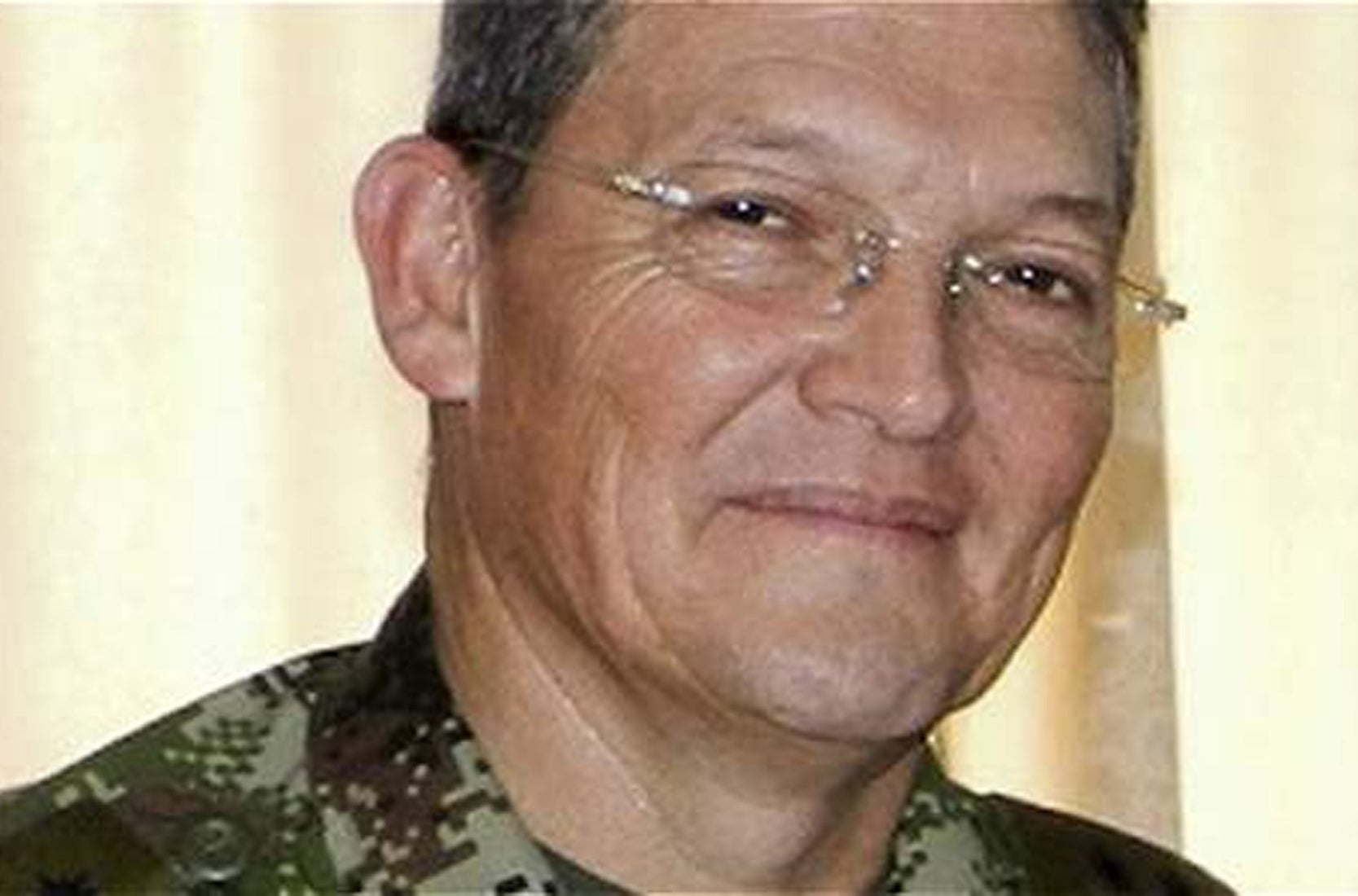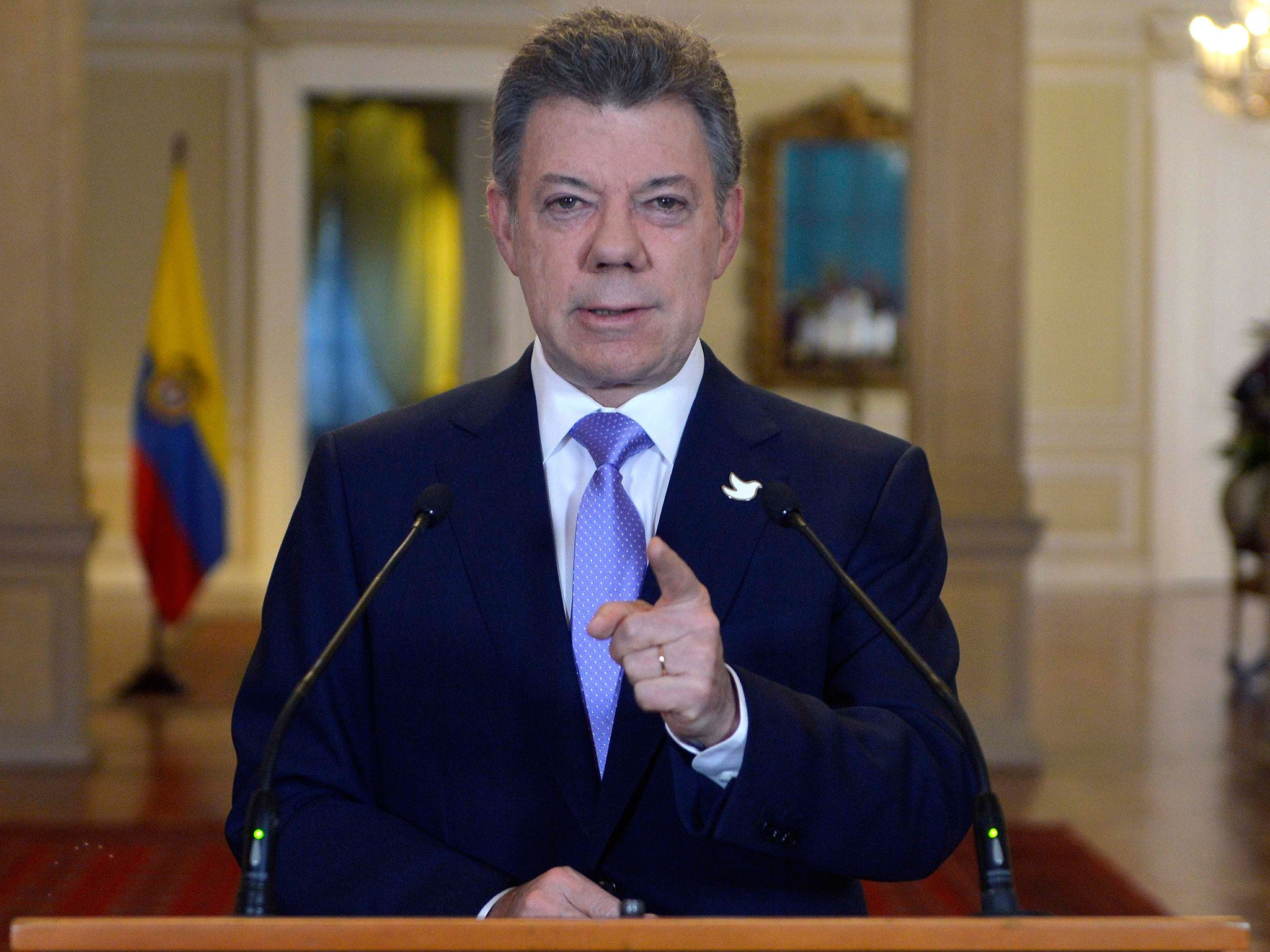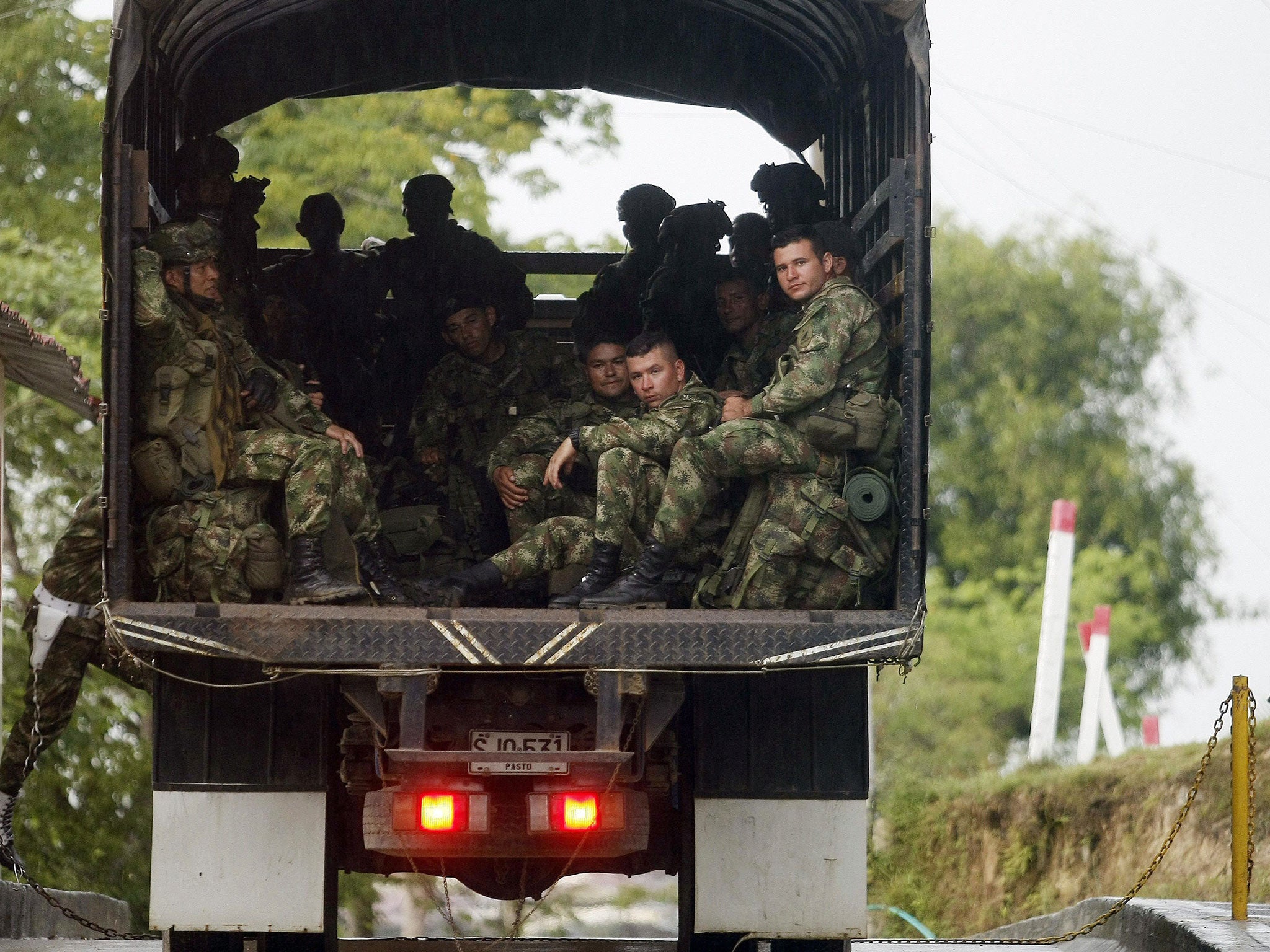Columbian peace talks with Farc in crisis after general is kidnapped
General Ruben Dario Alzate has been abducted in bizarre circumstances

Your support helps us to tell the story
From reproductive rights to climate change to Big Tech, The Independent is on the ground when the story is developing. Whether it's investigating the financials of Elon Musk's pro-Trump PAC or producing our latest documentary, 'The A Word', which shines a light on the American women fighting for reproductive rights, we know how important it is to parse out the facts from the messaging.
At such a critical moment in US history, we need reporters on the ground. Your donation allows us to keep sending journalists to speak to both sides of the story.
The Independent is trusted by Americans across the entire political spectrum. And unlike many other quality news outlets, we choose not to lock Americans out of our reporting and analysis with paywalls. We believe quality journalism should be available to everyone, paid for by those who can afford it.
Your support makes all the difference.Colombian President Juan Manuel Santos has come under intense pressure to suspend peace talks with Farc, the country’s largest guerrilla group, after the highest-ranking military official in 50 years was abducted at the weekend.
While doubts remain about the identity of the kidnappers, suspicion immediately fell on Farc, which is suspected of taking General Ruben Dario Alzate.
General Alzate was surveying a rural energy project along a remote river in western Colombia in the department of Chocó, a highly contested area where the 34th division of the Revolutionary Armed Forces of Colombia, or Farc, operates, when he was kidnapped by armed men.
News of the abductions brought a close to peace talks which had been taking place for two years in the Cuban capital, Havana, after Mr Santos said that Farc was responsible for taking the general: "Farc is responsible for the life and safety of these three people”.
Farc, which has long used kidnappings as tactic against the government in Bogota, has not claimed responsibility for abducting General Alzate.
“Until Farc explicitly acknowledges they carried out the kidnapping, the government has to be fairly careful [with accusing the guerrilla],” said Roddy Brett, from the Centre for Peace and Conflict Studies in the School of International Relations at the University of St Andrews.

The event follows the abduction of two soldiers in the eastern Arauca province, and an apology following the deaths of two members of the indigenous Nasa tribe. On 5 November, Farc released a statement in which it claimed to "profoundly lament" the killing of the tribesmen.
General Alzate is reported to have been snatched under “bizarre” circumstance - he was not wearing combat fatigues and was under no apparent orders from the army.
Mr Santos laid blame squarely on Farc for the general's disappearance, and also demanded to know why one of Colombia's most distinguished soldiers apparently violated military protocol and set off on a river journey dressed as a civilian without his bodyguards.
While Mr Brett explained the recent kidnap “could demonstrate a rogue Farc unit, brigade or front that isn’t necessarily being represented from its perspective within Cuba, and potentially doesn’t want to demobilise”, he expressed a doubt precisely as to the informed involvement of Farc’s upper echelon, the Secretariat of the Central High Command.
“It would seem curious, given that Farc is negotiating, they would make that kind of order from a higher level,” Mr Brett added. “The kidnapping itself is a rather ambivalent moment.”
Notwithstanding the kidnapping, Farc is desperate to increase its leverage at the Havana talks and believes one way in which it can achieve this is by demonstrating its military strength.
The abduction comes amid mounting fatigue with the negotiations and growing pressure on Mr Santos to sign a peace agreement with the guerrillas.

After finishing a five-day tour of Europe to seek funds to support post-conflict Colombia, Mr Santos said on Sunday that he expects the conflict with Farc will end in 2015, after more than half a century. He said talks should be concluded next year because it “will be difficult to maintain this process indefinitely”.
Colombians re-elected Mr Santos in June, in a vote seen by many as a referendum on peace talks with the guerrillas, but while opinion polls show more than 70 per cent of Colombians back the peace process, over half of Colombians today believe a deal with the rebels will not be reached.
Pablo Calderón Martínez, a Latin American expert and Spanish and European Studies fellow at King's College London, said the abduction does not represent a lack of compromise by Farc's leadership.
“Farc cannot afford not to participate in the peace process,” he said. However, he described the government’s response to the kidnap as being part of Mr Santos’ “process” to strengthen his political position.
“Mr Santos’s response shows mounting pressure on the government to get the talks moving. The regional agenda was initially to have a deal in place by December 2013, and Santos has to deliver relatively soon,” he said, pointing to the guerrillas' commitment to the peace process.
“Blaming Farc might be part of his process: he is trying to make the point that he is really putting pressure on Farc for the sake of the negotiation, and that is quite transparent.”
Founded in the 1960s, the Farc is the last leftist guerrilla army operating in Colombia. It boasts an estimated 8,000 to 9000 fighters.
Join our commenting forum
Join thought-provoking conversations, follow other Independent readers and see their replies
Comments